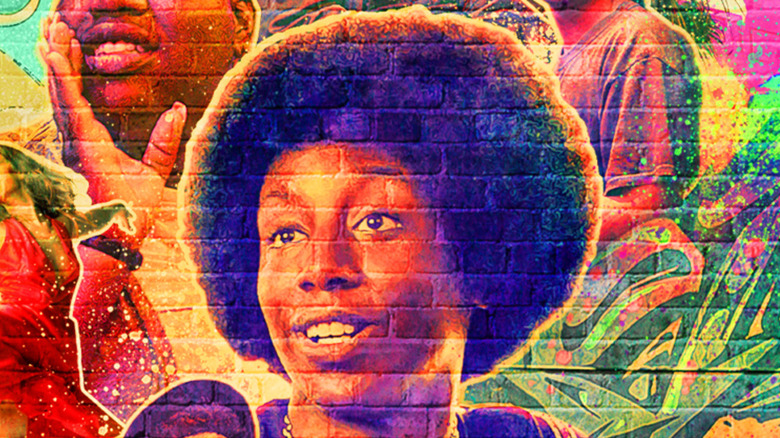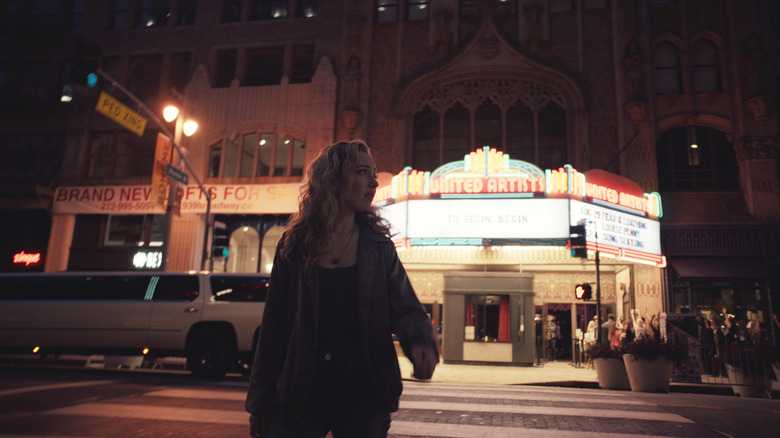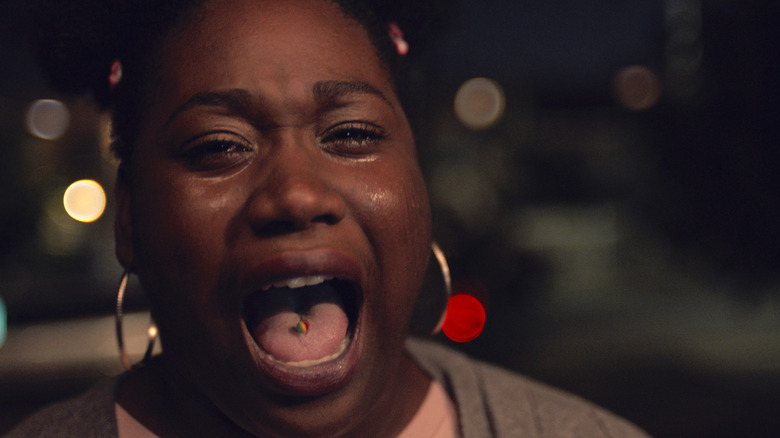Summertime Review: Too Cute By Half
It can be really difficult to pan a film that's fundamentally pure of heart. When a big studio releases some random, hollow, algorithmically designed cash grab that doesn't stick the landing, the words flow freely, unfettered critique raining down from the sky like targeted drone strikes. But for something like "Summertime," the experimental new feature from "Blindspotting" helmer Carlos Lòpez Estrada, a gentler, more measured response feels necessary. It's too sweet, too earnest and too genuine a film to callously bruise it with a thoughtless takedown. It's also, unfortunately, just too messy — and at times grating — to properly recommend.
The film is a kaleidoscopic look at a day in the life of Los Angeles for a diverse array of youths, each played by spoken word artists and poets from the area. Director Estrada and screenwriter Dave Harris incorporate the expressive poetry of 27 cast members, weaving their individual performance pieces into a larger tapestry designed to present the current generation and their varied trials and tribulations. The idea feels like a more loose and daring approach to sprawling ensemble pictures like Robert Altman's "Nashville," Paul Thomas Anderson's "Magnolia," or even Richard Linklater's "Slacker."
But where those films and others like them stitch various smaller plots into one larger narrative or thematic quilt, "Summertime" never quite comes together as a cohesive whole, instead feeling like the cinematic equivalent of scrolling through a poorly curated social media feed for 90 minutes and not being allowed to close the app when you get tired of what you see. There's plenty to "like" here and even some "posts" you might want to "share," but as a collective unit of storytelling, it leaves so much to be desired.
A musical, minus the music
There is no main character in "Summertime." No central figure or figures to rally around. It's just several smaller dramas laid end to end, over time overlapping in ways both fascinating and haphazard. At such a brisk runtime, the sheer breadth of individuals the audience is introduced to feels ambitious to a fault. Someone will just appear onscreen and deliver a charming poem to themselves, the viewer and whoever may be around within their little showcase of a vignette. Once their little scene concludes, they'll walk by someone else or a passerby doubling as an interstitial, then someone new enters the fray. Rinse. Repeat.
"Summertime" has the tenor of a screen musical. Within that format, characters will break into song at opportune intervals, bursting into melody and making their dramatic subtext into very loud, often catchy bits of text. But here, instead of songs, the characters perform seemingly extemporaneous expressions of their own inner turmoil. In the film's first third or so, these Def Poetry Jam monologues take inconsistent forms. They might be comedic screeds from a put-upon Yelper (Tyris Winter) clapping back at the rude server he receives in a gentrified brunch spot or a lesbian babysitter defiantly declaring her orientation for a bigoted bus passenger. But these easy layup explosions of righteous fury feel hollow, as they're often directed at paper-thin straw man antagonists who exist solely to be both loud and on the wrong side of history.
It gets more troubling when the more experimental sequences begin to occur, like being asked to watch estranged lovers in a non-traditional kind of couples therapy that leads them to freestyle at each other, complete with bongoes as accompaniment. Or ongoing scenes with Anewbyss (Bryce Banks) and Rah (Austin Antoine), a pair of up and coming rappers making their way in the world despite the fact that their individual performances leave a lot to be desired.
Scenes like this call to mind Estrada's debut film "Blindspotting," but they remind us how that film's particular rhythm and vibe was born of its two leads writing together and having a unified vision for their respective characters. This is a movie working from a script cobbled together from nearly 30 disparate creative voices. If "Blindspotting" was a well-executed concept album, "Summertime" is a various artists compilation without the necessary A&R work to cultivate something resembling a sonic through-line.
For every hit, there's an equal or exceeding amount of misses — and this being a movie and not a record, there's no way to skip all the duds. So when a subplot involving a jilted ex (Maia Mayor) stalking her former flame and what she perceives to be their new partner wastes precious screen time, the viewer is just stuck with her every time she pops back up. It's so unfortunate.
In the micro sense, some of the individual poems and performances are quite strong, but taken together, too many of the worst offenders are dripping with a front-facing sentimentality that borders on insufferable. It's clear that each of the artists asked to contribute to this group project had their own thematic axes to grind, so in concert, there is something interesting to be said about the branching cultural shifts, the travails of the gig economy and the strange ways our lives often intersect.
It's just that all those things are said in an often grating tone that feels like drinking wheatgrass and Diet Coke back to back.
Lift every voice
But as irritating and off-putting as some segments in "Summertime" have a tendency to be, this is a movie inspired by and created by a slew of young poets, many of whom were high school age. Estrada discovered them courtesy of a poetry showcase put on by Get Lit, an L.A.-based nonprofit designed to help teach students about spoken word. For all the movie's considerable foibles, everyone involved deserves plaudits for rounding up this many genuine young people together to tell their own stories, rather than only presenting a small sample size of the most photogenic and stereotypical teens imaginable.
"Summertime" holds space for figures like Jason Àlvarez, a young graffiti artist featured throughout the film who has a unique energy to his character that would be near impossible for forty-something screenwriters to conjure up for whatever CW Network teen soap is debuting this fall. It's a movie that provides a stage for Marqueesha Babers, easily the film's standout, a girl who spends her first few appearances putting on a brave face for a world she's having difficulty navigating. Her earlier protestations of being unable to share her true feelings with a counselor give way to her finally confronting a former love interest in a scene so show-stopping and so bold it almost makes up for the countless scenes before it that can't match a fraction of its emotive power.
Almost.
If this was still a world where the home video market and physical media mattered, a disc release of "Summertime" would be a fun little showcase for Estrada as a director. With the useful magic of chapter skip at a viewer's disposal, the film becomes a fascinating reel, not unlike the Directors Label DVDs that once aggregated music videos from filmmakers like Spike Jonze and Michel Gondry. He still possesses the gift for honestly capturing the world as it is and now how Hollywood often pretends it to be. But here, his chosen paradigm doesn't allow for the consistency and narrative satisfaction that would be necessary to make this a pleasant viewing experience for anyone but the most forgiving of audience members.
For anyone content to just see the pure expression of art for the sake of it, "Summertime" provides plenty to applaud. But the rest will find themselves wanting stories that ebb and flow, not just an oversized sampler pack of endearing poems and fresh faces.


